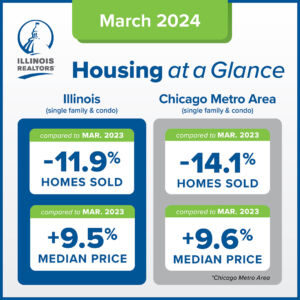Independent Contractor or Employee?
The concept of a lawful brokerage/independent contractor relationship remains alive and well in Illinois. The Illinois Real Estate License Act continues to recognize it as a legitimate way to practice the real estate profession, provided that a written agreement defining that relationship exists. The Illinois Workers Compensation Act and Unemployment Insurance Act both continue to specifically exclude real estate professionals paid by commission from being deemed “employees” for whom those statutes extend coverage. Moreover, there have been no recently reported Illinois appellate court decisions wherein the classification of a licensee was at issue. So, Illinois law continues to accommodate the traditional ways brokers and licensees do business.
Research and analysis by John A. Kauerauf,
Sorling Northrup Attorneys
That being said, cases do tend to pop up from time to time in other jurisdictions which suggest that classification disputes are not always the open and shut case that a brokerage may anticipate. For example, in the case of Nyok Lee v. WWW.Urban.Inc., 2017 U.S. District Lexis 134809, the U.S. District Court for the Southern District of Texas in mid‑2017 was asked to find that a brokerage’s licensees were clearly independent contractors and that therefore the brokerage had no responsibility to pay the licensees overtime compensation for working more than 40 hours in the course of a workweek. Not so fast claimed the licensees, who alleged that the brokerage exercised substantial control over their work and that the licensees’ sole investment in their so called independent business was a $350 monthly “desk fee.” The brokerage countered that the licensees make their own decisions as to which properties to show customers and that the licensees are free to assist customers with purchasing homes not listed by the brokerage. At the end of the day, the Court found the evidence to be a mixed bag and allowed the case to proceed to trial. The brokerage ultimately prevailed but only after the case was tried before a jury in March of 2018.
Did you know...
Members can download a FREE Sponsoring Broker-Sponsored Licensee Contract (Independent Contractor Agreement Form) produced by Illinois REALTORS® Legal Team.
The combatants in such disputes are not always just the licensee and the brokerage as illustrated by the case of Spies v. DeLoach Brokerage, 169 F.Supp.3d 1365 (S.D. Ga. 2016). In Spies, a disgruntled purchaser sued the brokerage with which her agent was affiliated due to the agent’s alleged negligent failure to disclose soil erosion problems associated with a piece of waterfront property which Spies purchased. In finding for the brokerage and against the purchaser, the U.S. District Court noted that the licensee set his own hours, was paid commissions, found his own listings, and otherwise generated his own business. The fact that the agent used brokerage letterhead and office space was deemed by the Court to be inconsequential because the brokerage either charged the agent for their use or did not require their use. Thus, since the agent was an independent contractor, and not an employee as Spies claimed, the brokerage could not be found liable for his allegedly negligent actions.
As both of these cases point out, the classification of one as an employee or independent contractor remains a highly fact specific inquiry. Under Illinois common law, as most recently stated by the Illinois Appellate Court in Liberty Ins. Corp. v. Super Trucking Constr., Inc., 2018 IL App (1st) 170079-U, a non‑real estate related case, the factors to be considered by a court tasked with classifying a worker include:
- Whether the alleged employer may control the manner in which the person performs work;
- Whether the alleged employer dictates the person’s schedule;
- Whether the alleged employer pays the person “by the hour”;
- Whether the alleged employer withholds income and social security taxes from the person’s compensation;
- Whether the alleged employer can discharge the person at will; and
- Whether the alleged employer supplies the person with materials and equipment.
The Appellate Court noted that while the right to control the manner of work is often called the most important consideration, no single factor will control. All of the circumstances must be considered.
Because of the breadth of analysis that an Illinois court is required to apply to such situations, it is advisable to meet as many of the factors identified above as possible to ensure that an independent contractor relationship will be found to exist, if that is the brokerage’s desired result. Accordingly, in the real estate sales context, if an independent contractor relationship is desired, the brokerage’s written contracts with its licensees should recite as many of the essential features of an independent contractor relationship as possible, including the following:
- Payments should be commission based.
- Payments should be for sales, not hours worked.
- Licensees should file their own tax returns and pay their own taxes.
- Licensees should be responsible for acquiring their own tools of the trade and bear the expenses of doing business.
- Licensees should be free to use their own methods of doing business (subject to relevant professional regulatory and ethical rules).
- Mandatory broker office-based work should be kept to a minimum.
- The broker-licensee relationship should have a defined termination mechanism within the written agreement. This is typically a termination upon notice clause. The notice clause distinguishes a contractor from an at will employee who is free to quit at any time without notice.
The more of these features imbedded in a broker’s relationship with his or her independent contractors, the more likely the licensee will be deemed to be an independent contractor. As a reminder, a model sponsoring broker‑sponsored licensee contract can be found under the Legal Services tab of the Illinois REALTORS®’ website. As with any form, the form should be reviewed with the broker’s legal counsel for modification as necessary to meet the unique aspects of the broker’s business.
About the writer: John Kauerauf is a shareholder member of the Sorling Northrup law firm of Springfield. He joined Sorling Northrup upon his graduation from the University of Illinois College of Law in 1986. Kauerauf has provided legal counsel to the Illinois REALTORS since 2013, and focuses his practice in the areas of employment law and for profit and not for profit business advising.





 Create professional development programs that help REALTORS® strengthen their businesses.
Create professional development programs that help REALTORS® strengthen their businesses.
 Protect private property rights and promote the value of REALTORS®.
Protect private property rights and promote the value of REALTORS®.
 Advance ethics enforcement programs that increase REALTOR® professionalism.
Advance ethics enforcement programs that increase REALTOR® professionalism.
 Protect REALTORS® by providing legal guidance and education.
Protect REALTORS® by providing legal guidance and education. Stay current on industry issues with daily news from Illinois REALTORS®, network with other professionals, attend a seminar, and keep up with industry trends through events throughout the year.
Stay current on industry issues with daily news from Illinois REALTORS®, network with other professionals, attend a seminar, and keep up with industry trends through events throughout the year.


